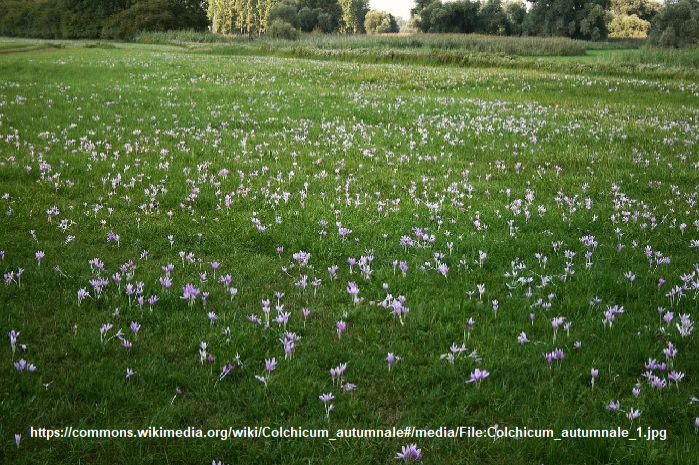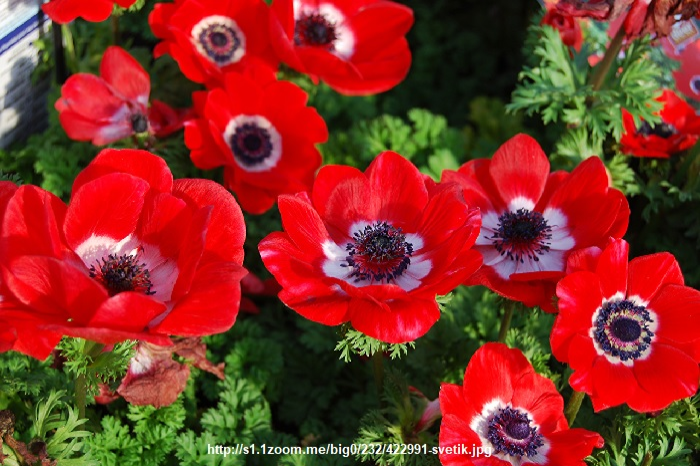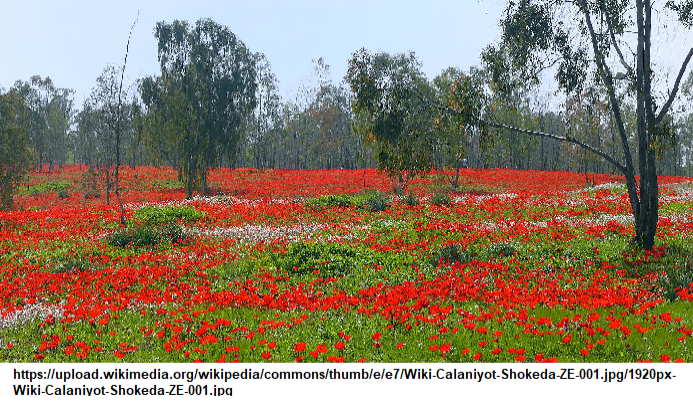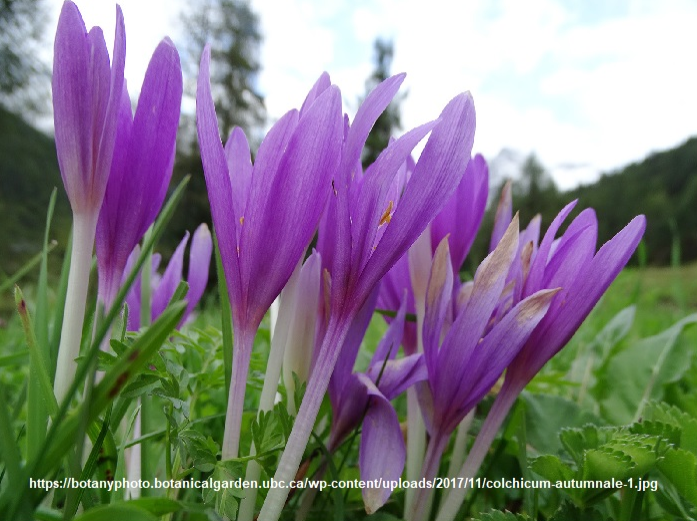22003 Commentary on the Song of Songs
The Language of Love
The Song of Songs 1:9-2:7
Download PDF:
https://od.lk/f/MV8zNDE1NDUyMzJf
https://od.lk/fl/MV8xODI0MzMzNl8
Please share this website with all your friends and family members. Thank you, and God bless.
All the Bible verses quoted in this article are from the King James Version, unless otherwise noted.
The Song of Songs 1:9-17
9 I have compared thee, O my love, to a company of horses in Pharaoh’s chariots.
10 Thy cheeks are comely with rows of jewels, thy neck with chains of gold.
11 We will make thee borders of gold with studs of silver.
12 While the king sitteth at his table, my spikenard sendeth forth the smell thereof.
13 A bundle of myrrh is my wellbeloved unto me; he shall lie all night betwixt my breasts.
14 My beloved is unto me as a cluster of camphire in the vineyards of Engedi.
15 Behold, thou art fair, my love; behold, thou art fair; thou hast doves’ eyes.
16 Behold, thou art fair, my beloved, yea, pleasant: also our bed is green.
17 The beams of our house are cedar, and our rafters of fir.
The Song of Songs 2:1-7
1 I am the rose of Sharon, and the lily of the valleys.
2 As the lily among thorns, so is my love among the daughters.
3 As the apple tree among the trees of the wood, so is my beloved among the sons. I sat down under his shadow with great delight, and his fruit was sweet to my taste.
4 He brought me to the banqueting house, and his banner over me was love.
5 Stay me with flagons, comfort me with apples: for I am sick of love.
6 His left hand is under my head, and his right hand doth embrace me.
7 I charge you, O ye daughters of Jerusalem, by the roes, and by the hinds of the field, that ye stir not up, nor awake my love, till he please.
The Song of Songs 1:9-17 and 2:1-7 record the love songs exchanged between Solomon and Shulamite during their engagement period. In this article, we will explore the meaning of those love songs. But first, we will follow the context, breaking down the verses and arranging the verses that relate to a common idea together.
Below is the breakdown of verses according to the context of the Song of Songs 1:9-2:7.
I. Engagement Period (1:2-3:5)
A. Love for Each Other (1:2-2:7)
1. Shulamite’s Love for Solomon (1:2-8)
2. The Language of Love (1:9-2:7)
(1) Solomon: I have compared thee, O my love, to a company of horses in Pharaoh’s chariots. Thy cheeks are comely with rows of jewels, thy neck with chains of gold.
(2) The daughters of Jerusalem: We will make thee borders of gold with studs of silver.
(3) Shulamite: While the king sitteth at his table, my spikenard sendeth forth the smell thereof. A bundle of myrrh is my wellbeloved unto me; he shall lie all night betwixt my breasts. My beloved is unto me as a cluster of camphire in the vineyards of Engedi.
(4) Solomon: Behold, thou art fair, my love; behold, thou art fair; thou hast doves’ eyes.
(5) Shulamite: Behold, thou art fair, my beloved, yea, pleasant: also our bed is green. The beams of our house are cedar, and our rafters of fir.
(6) Shulamite: I am the rose of Sharon, and the lily of the valleys.
(7) Solomon: As the lily among thorns, so is my love among the daughters.
(8) Shulamite: As the apple tree among the trees of the wood, so is my beloved among the sons. I sat down under his shadow with great delight, and his fruit was sweet to my taste. He brought me to the banqueting house, and his banner over me was love. Stay me with flagons, comfort me with apples: for I am sick of love. His left hand is under my head, and his right hand doth embrace me.
(9) Shulamite: I charge you, O ye daughters of Jerusalem, by the roes, and by the hinds of the field, that ye stir not up, nor awake my love, till he please.
Next, let us explore the meaning of each verse:
(1) Solomon: “I have compared thee, O my love, to a company of horses in Pharaoh’s chariots. Thy cheeks are comely with rows of jewels, thy neck with chains of gold.”
After hearing the queens and concubines skillfully mock and humiliate Shulamite, implying a comparison to a prostitute (1:8), Solomon publicly praises Shulamite’s beauty and expresses his love for her.
The noun “my love” is used by Solomon nine times in the Song of Songs to refer to Shulamite (1:9; 1:15; 2:2; 2:10; 2:13; 4:1; 4:7; 5:2; 6:4). In the original Hebrew of the Bible, it is a term used by a man to refer to his beloved, meaning “the beloved woman who walks alongside in life.” Solomon implies that although he has many queens and concubines, Shulamite is his most cherished one and the woman who shares the joys and sorrows of life with him.
Solomon had many chariots, pulled by highly trained war horses. Some of these might have been gifts from Pharaoh when he married the princess of Egypt, while most were purchased from Egypt for his army. 1 Kings 4:26 states that Solomon had 40,000 stalls for the horses that pulled his chariots. Each stall was for one horse, meaning Solomon had 40,000 horses specifically for chariot duty. Each chariot required two horses to pull it. If each chariot had four horses taking turns pulling, Solomon would have had 10,000 chariots.
Let’s imagine Solomon riding his most beloved and beautiful mare among the chariots for a military review. Despite being surrounded by powerful war horses, Solomon’s mare remains unafraid. Her beauty, nobility, and strength stand out among the war horses.
Shulamite’s face is naturally beautiful with her locks of hair hanging loosely on either side of her cheeks, with jewelry strands hanging from her hair clip, or with her earrings. The word “locks” in the original Hebrew can refer to either hair locks or jewelry strands. Since the word “locks” is not accompanied by the words for hair or jewelry, we can understand that the word is used to generally refer to both hair locks and jewelry strands. Shulamite’s neck is naturally beautiful but is further highlighted by a string of precious jewelry.
Verse (1) can be interpreted as follows: Solomon says to Shulamite, My beloved! Do not worry about the jealous, malicious words. To me, you are as beautiful and strong as my beloved, precious mare, confident and outstanding among Pharaoh’s chariot horses. Your loose locks of hair, the jewelry strands from your hair clip, and your earrings accentuate the beauty of your cheeks. And the luxurious string of pearls highlights the noble beauty of your neck.
Spiritual Lesson: To the Lord Jesus Christ, the Church is the “person” who will accompany Him throughout eternity, as He Himself has said:
“And if I go and prepare a place for you, I will come again, and receive you unto myself; that where I am, there ye may be also.” (John 14:3).
To the Lord Jesus Christ, the Church is beautiful with the righteous deeds of the saints (Revelation 19:8) and courageous unto death in the face of severe persecution by Satan and those who oppose God (Revelation 2:10).
The Lord Jesus Christ cherishes the Church and bestows upon the Church the highest honor of being united with Him and co-reigning with Him over the inheritance of God forever. He has given the Church the very glory within His human nature (John 17:22). It is the nature of one who bears the name of God (John 17:11; Hebrews 1:8-9).
(2) The daughters of Jerusalem: “We will make thee borders of gold with studs of silver.”
Solomon’s comparison of Shulamite to his beloved mare among the valiant soldiers was a statement that elevated Shulamite’s beauty and grace. Solomon’s praise for Shulamite made the queens and concubines realize that their envious words had gone too far, insulting the woman whom Solomon deeply loved and respected. They quickly spoke words of reconciliation, expressing their intention to make jewelry for her as a gift.
 Illustration: Necklace with studs
Illustration: Necklace with studs
Verse (2) can be paraphrased as follows: The queens and concubines say to Shulamite, O you who are honored and loved by the king! We will make you gold chains with silver studs to enhance your beauty. Please forgive us.
Spiritual lesson: As God’s people, we must avoid jealousy and speaking ill of one another. These are acts of the flesh that bring no benefit, do not build up, and do not glorify the Lord’s name. Each of us has been placed by the Lord in a specific position and given a responsibility in His eternal plan. Let us rely on God’s grace to quickly recognize our position and duty, so we may wholeheartedly complete the good works that God has prepared for us. Likewise, let us rely on God’s grace to quickly recognize the position and duty of our brothers and sisters in the Church, so we may fully support them in accomplishing their good works. Let us help to elevate the spiritual beauty of our brothers and sisters instead of being jealous or looking down on others.
(3) Shulamite: “While the king sitteth at his table, my spikenard sendeth forth the smell thereof. A bundle of myrrh is my wellbeloved unto me; he shall lie all night betwixt my breasts. My beloved is unto me as a cluster of camphire in the vineyards of Engedi.”
The Hebrew word “מֵסַב” (mēsaḇ) /may-sab’/ (H4524), when used as a noun, refers to a circular object, such as a round table, or to the area surrounding it; when used as an adverb, it means “around” or “surrounding.” In the original Hebrew of the Bible, verse 12 does not include the verb “sit.” According to the context, Solomon and Shulamite are strolling in the forest, so there is no mention of sitting at a table. Therefore, we have chosen to translate verse 12 as describing King Solomon walking around Shulamite during their outing in the grove:
“While the king was in his walking around [with me], my nard gave forth its fragrance.”
Please compare the King James Version translation with other literal translations.
“While the king sitteth at his table, my spikenard sendeth forth the smell thereof.” (King James Version)
“While the king is in his circle, My spikenard hath given its fragrance.” (1898 Young’s Literal Translation)
“While the King is in His circle, my spikenard gives its fragrance.” (Literal Translation of the Holy Bible)
Spikenard is a fragrant substance made from the roots of the plant Nardostachys jatamansi. This plant grows on the eastern slopes of the Himalayas, at elevations ranging from 3,000 to 5,000 meters. Spikenard was imported into Egypt and the Middle East as a valuable fragrance, used in the preparation of perfumes and sedatives. A vial of spikenard oil used by a woman to anoint the head of the Lord Jesus Christ two days before His crucifixion was worth a year’s wages for a laborer (Mark 14:1-6).
Myrrh is a fragrant resin obtained from the bark of several thorny small trees native to tropical Africa and the Middle East. Myrrh was used as a treatment for various ailments and as a perfume, particularly to embalm the dead.
The henna plant, also known as the camphire or nail flower, is a flowering plant with creamy, fragrant clusters, found abundantly in northern Africa and southern Asia. The leaves of the henna plant are ground into a fine powder and used as a dye for coloring nails, skin, hair, silk, wool, etc.
En Gedi is a town in the wilderness of Judah, located on the western shore of the Dead Sea, about 80 km from Jerusalem. The area is known for its fertile land with many vineyards, date palm orchards, and aromatic plants.
The cedar of Lebanon is a valuable timber tree used for building ships and constructing homes. The resin of the cedar is very fragrant. The temple of God was built using cedar wood. 2 Chronicles 1:15 mentions that King Solomon planted many cedars around Jerusalem. Today, there are no remaining traces of the cedar forest planted by King Solomon, but the people of Israel have established the Jerusalem Forest to the southwest of the city, which includes a cedar trail approximately 4 km long [1].
When Solomon and Shulamite strolled together in the cedar forest interspersed with cypress trees, the king remained close to her. At times, Solomon walked in front of her, sometimes behind her, and at other times to her right or left. The fragrance from the spikenard oil on Shulamite’s body enveloped Solomon. The brief lyrics vividly convey the closeness of the lovers.
Shulamite tells the queens and concubines that while King Solomon was closely attending to her, the spikenard oil she applied to her body emitted a soothing fragrance that Solomon favored. Perhaps Shulamite implies that Solomon had given her the most precious perfume, which she used during her presentation to him, pleasing Solomon. He was pleased to see Shulamite using his precious gift during their meeting, as it enhanced her noble and lovable presence. To Solomon, the fragrance emanating from Shulamite’s body was like her love dedicated solely to him, radiating and enveloping him.
In contrast, Solomon used perfume made from myrrh. The fragrance of myrrh emanating from Solomon reminded Shulamite of the myrrh sachet she wore on her chest while sleeping, and she envisioned her beloved lying beside her throughout the night. Solomon’s bright face, fragrant body, and cheerful demeanor made Shulamite think of the clusters of henna flowers in the vineyards of En Gedi. Perhaps these were the vineyards of King Solomon that she had previously helped her brothers tend to, and there she had admired the beautiful clusters of henna flowers on many occasions.
In marital life, God’s people should keep their bodies clean and fragrant by bathing daily, as our bodies are both the temple of God and the members of Christ, and they belong to our spouse (1 Corinthians 3:16; 6:15; 6:19; 7:4). There is nothing wrong with using fragrant cosmetics, such as fragrant soaps for bathing, scented moisturizers, and even perfumes, as long as these scents are agreeable to our spouse. Today, essential oils such as spikenard and myrrh are available in stores that specialize in essential oils.
Verse (3) can be interpreted as follows: Shulamite says to the queens and concubines: While the king is in front of me, behind me, and beside me, the spikenard oil applied to my body emits its soothing fragrance, refreshing him. My love for him reaches out to him like the scent of spikenard. My beloved is fragrant like myrrh, akin to the scent of a myrrh pouch resting on my chest throughout the night. His love embraces me in my sleep, just like the fragrance of myrrh. My beloved is bright and beautiful, like the clusters of henna flowers in the vineyards of En Gedi.
Spiritual Lesson: Christ grants the Church purity by cleansing all its sins with His holy blood. Christ is always beside the Church, so the Church must continually embody that purity. Living a holy life is how the Church expresses its love for Christ.
The love of Christ for the Church and the purity of Christ envelop the Church like fragrant myrrh. The righteousness of Christ is His beauty, just as the brightness and loveliness of henna flowers grow in the most fertile land.
(4) Solomon: “Behold, thou art fair, my love; behold, thou art fair; thou hast doves’ eyes.”
God’s Word compares our eyes to the lamp of the body:
“The light of the body is the eye: if therefore thine eye be single, thy whole body shall be full of light.” (Matthew 6:22)
The Scriptures also advise us to be as innocent as doves (Matthew 10:16) and use the form of a dove to symbolize the Holy Spirit (Matthew 3:16; Mark 1:10; John 1:32). Therefore, comparing a person’s eyes to the eyes of a dove signifies a beauty that extends from the spirit to the physical. This means the person not only has an outwardly beautiful appearance but also possesses a heart that is innocent, pure, gentle, and peaceful, bringing joy and comfort to others.
Verse (4) can be interpreted as follows: Solomon says to Shulamite, O my beloved! Listen to my words! You are truly beautiful! You are beautiful from body to spirit. Your eyes are lovely, like doves’ eyes, radiating simplicity, purity, gentleness, and peace within you and expressing your deep love for me, which fills me with joy when I am near you.
Spiritual Lesson: Christ sacrificed Himself out of love for us, cleansing us from sin and making us holy to be eternally united with Him and co-heirs of God’s kingdom. Likewise, out of love for Christ, we should be willing to pay any price, including our own lives, to remain faithful and live a holy life following His example.
(5) Shulamite: “Behold, thou art fair, my beloved, yea, pleasant: also our bed is green. The beams of our house are cedar, and our rafters of fir.”
Solomon and Shulamite stroll through the cedar forest on the outskirts of Jerusalem. They lie together on the green grass, admiring the cedar and cypress trees. Shulamite compares the forest to their own private home, with the lush green grass as their bed, the cedar branches as the beams of their house, and the cypress branches as the rafters. She feels so happy to be with her beloved that anywhere can be home as long as he is by her side.
Verse (5) can be interpreted as follows: Shulamite says to Solomon, My beloved, listen to me! You are truly beautiful and lovely! As long as you are beside me, I am happy. I need nothing more than you! I do not care about golden palaces or precious jewels. This green grass is like our bed. Those cedar branches are like our beams, and those cypress branches are like our rafters.
Spiritual Lesson: In our lives, as long as we belong to Christ and Christ is present with us, we need nothing more, as expressed in a hymn: “He is all my need.”
(6) Shulamite: “I am the rose of Sharon, and the lily of the valleys.”
The autumn crocus (Colchicum autumnale) of Sharon is likely a type of autumn-blooming lily found in the plains of the Sharon region. The King James Version and some other English Bible translations render it as “rose.” However, roses are quite different from the autumn crocus.
Sharon is a plain located south of Mount Carmel, by the Mediterranean Sea, where King David’s herds were grazed (1 Chronicles 27:29).
The lilies of the plains might be the red anemone (Anemone coronaria) commonly found in the plains of the Middle East. We know they are red because, in Song of Songs 5:13, Solomon’s lips are compared to lilies.
 Illustration: A field of Autumn Crocus
Illustration: A field of Autumn Crocus
 Illustration: The Lily of the Valleys
Illustration: The Lily of the Valleys
 Illustration: A field of The Lily of the Valleys
Illustration: A field of The Lily of the Valleys
Shulamite compares her beauty to the crocus of Sharon and the lily of the valleys. Both types of flowers are beautiful but wild, growing abundantly in the pastures of Canaan. Most commentators believe that Shulamite, in her humility, compares herself to wild flowers. However, we should remember that Shulamite has boldly declared, “I am black, but comely.” And Shulamite has compared herself to the tents of Kedar and the curtains of Solomon’s palace (1:5). In 7:1, Solomon refers to Shulamite as a noblewoman. Therefore, we think that when Shulamite compares herself to the crocus of Sharon and the lily of the valleys, it is not to express humility. Instead, Shulamite intends to highlight that these two beautiful flowers are the queens of the flowers in the meadows because, when they bloom, they resemble a carpet spread over the meadow, overshadowing all other flowers. The Lord Jesus Christ Himself once said that the beauty of the field lilies, which God provides, is even more splendid than the finest robes of King Solomon (Matthew 6:28-29; Luke 12:27).
Some commentators use Song of Songs 2:1 to refer to the Lord Jesus Christ, calling Him the “Rose of Sharon” and the “Lily of the Valleys” in English Bible translations. This has led to the creation of two hymns: “Rose of Sharon” and “Lily of the Valleys.” However, the imagery of these two types of flowers is meant to refer to the Church!
Verse (6) can be understood as follows: Shulamite speaks to herself, but with the intention that Solomon hears: I am beautiful and full of vitality. I am like the crocus in the meadows of Sharon. I am like the lily covering the plains. May it be that in your eyes, only my lovely form is seen.
Spiritual Lesson: The Church must recognize that it has been granted the glory of the Lord Himself and the life that comes from Him. This glory and life are far more precious than any other glory or life in the world. The Church needs to reflect the Lord’s glory and life in the world. The Church is beautiful and full of vitality, to the extent that the gates of hell, meaning death, cannot overcome the Church (Matthew 16:18).
(7) Solomon: “As the lily among thorns, so is my love among the daughters.”
The term “daughters” used in the Song of Songs is a specific term referring to female offspring. In a broader sense, it can mean female citizens of a city or country, or simply young women. Solomon’s song compares Shulamite to other young women.
Verse (7) can be understood as follows: Solomon speaks to himself, but with the intention that Shulamite hears: My beloved is exceedingly beautiful and lovely; no woman compares to her. The beauty and loveliness of all the other young women are nothing compared to hers. She stands out among them like the lily of the valleys among thorns.
Spiritual Lesson: Christ loves His Church more than all the things He has created. The Holy Spirit has compared Christ’s love for the Church to the love a husband has for his wife. Although there will be many groups of people in the eternal kingdom, and Christ loves all who belong to Him, He loves the Church the most. Christ loves the Church more than the saints before the Old Testament, such as Adam, Eve, Cain, Noah, Job, Abraham, etc. Christ loves the Church more than the saints of the Old Testament period, such as Moses, Joshua, Samuel, David, Elijah, Isaiah, Jeremiah, Daniel, etc. Christ loves the Church more than all the saints in the End Times. And Christ loves the Church more than all the saints during His thousand-year reign. We are truly blessed to be a part of the Lord’s Church. We should be grateful to the Lord and live a holy life in response to His love. Do not let worldly desires and things cause you to sin, fall away in faith, and miss out on the grace the Lord has given you.
We know that among the 12 apostles of the Lord, the Apostle John was called “the disciple whom Jesus loved” (John 13:23; 19:26; 20:2; 21:7, 20). This does not mean that Jesus loved only the Apostle John. For in John 13:1, it is written, “Having loved His own which were in the world, He loved them unto the end.” But at that time, among all those who belonged to Him and whom He loved, He loved the Apostle John the most.
We believe that the extent to which Jesus loves one person more than another depends on each person’s response to His love. Suppose A and B both love the Lord, but A loves the Lord more than B does, and the Lord loves A and B equally. Then it would not be just and contrary to what the Lord teaches. Jesus Christ Himself taught:
“Take heed what ye hear: with what measure ye mete, it shall be measured to you: and unto you that hear shall more be given.” (Mark 4:24).
The Holy Spirit has also taught:
“Be not deceived; God is not mocked: for whatsoever a man soweth, that shall he also reap” (Galatians 6:7).
Do the saints in the Church love the Lord more than the saints in all other eras? We believe that the saints in the Church are called to suffer for the sake of the Lord (1 Peter 2:21), so they sacrifice for the Lord out of a greater love than the saints in other eras, except for the saints in the End Times. The saints in the End Times also love the Lord to the point of sacrificing for Him, but they do not belong to the Church because they did not respond to the Lord’s call before the Lord removed the Church from the world.
Therefore, the truth is:
-
The more we love the Lord Jesus Christ, the more He will love us in return.
-
The Lord Jesus Christ loves the saints in the Church more than all the saints throughout all eras, and within the Church, there are some whom He loves more than others.
-
This love existed before the foundation of the world because He is the Omniscient God, who knows all things and knows in advance who will love Him fervently.
Thank God! For He has allowed us to belong to His Church.
(8) Shulamite: “As the apple tree among the trees of the wood, so is my beloved among the sons. I sat down under his shadow with great delight, and his fruit was sweet to my taste. He brought me to the banqueting house, and his banner over me was love. Stay me with flagons, comfort me with apples: for I am sick of love. His left hand is under my head, and his right hand doth embrace me.”
The term “sons” used in the Song of Songs refers specifically to male offspring. Broadly, it has two meanings. The first is to refer to male citizens of a city or nation; the second is to refer generally to young men. The comparison in the Song of Songs aims to contrast Solomon with other young men.
The apple is a fruit-bearing tree. The type of apple grown in Canaan is small but very sweet and fragrant. Apples are rarely found growing wild in the forest. The Song of Songs suggests that her beloved is more beautiful and precious than many other young men. The phrase “I sat down under his shadow with great delight, and his fruit was sweet to my taste” implies that the beloved is desired for an intimate relationship, to experience the pleasure of physical closeness. In the literary tradition of the Near East, the apple symbolizes romantic love and sexual reproduction. We will revisit the sexual meaning in Song of Songs 2:3 and some other verses in the final study of the Song of Songs.
The term translated as “my taste” in the original Hebrew encompasses all parts of the mouth: teeth, gums, tongue, the inside of the lips, the inside of the cheeks, the roof of the mouth, and saliva… These parts contribute to our ability to taste, enjoy, and savor food, drink, and kisses. The term can also be understood metaphorically as tasting or gaining understanding through experience, as used in Psalm 34:8, with the invitation:
“O taste and see that the LORD is good: blessed is the man that trusteth in Him.”
The wine house is also the place where feasts are held. After strolling in the spice forest, Solomon took Shulamite back to the palace to join a feast with the queens and concubines. At the banquet, Solomon attentively cared for and entertained Shulamite, demonstrating his love and esteem for her in front of the queens and concubines. Solomon’s attitude, gestures, and actions towards Shulamite were a manifestation of Shulamite’s happiness in their love, much like a flag raised over a victorious army returning triumphantly to the capital or a flag raised over city gates and streets during festivals, marking joy and celebration.
The term translated as “flagons” in the original Hebrew specifically means “raisin cakes.” Raisin cakes are made from dried grapes pressed together with flour. They are a delicious treat favored in the Middle East. The people of the Middle East believed that raisin cakes and apples had properties that enhanced sexual vitality and were beneficial for procreation. In ancient times in the Middle East, raisin cakes and apples were often served to guests at feasts.
The term translated as “stay” in the original Hebrew means to restore or support someone to become stable. The verb “comfort” means to make someone comfortable and regain strength. After the walk in the fragrant woods, Shulamite was overwhelmed by Solomon’s display of love and felt exhausted. She wanted to have a light meal to regain her strength.
However, the truth is that Shulamite was intoxicated with a desire for sexual intimacy with her beloved. What she wanted was to engage intimately with Solomon.
The verb “to embrace” has both the ordinary meaning of hugging and the connotation of caressing and fondling, describing sexual activity between husband and wife.
Verse (8) can be interpreted as follows: Shulamite says to herself, My beloved is among the young men, as rare as an apple tree among the wild trees. I have longed to nestle close to him, enjoying the sweetness of his body. He has brought me into the dining room in the palace, where there is a sumptuous banquet. In the presence of the queens and concubines, his love is demonstrated through the way he cares for me, like a banner displaying his emblem over me, signaling to everyone that I belong to him. My heart is intoxicated, captivated by the flavor of love, making my body weak. Please let me have some cakes of raisins and apples to regain my strength. But I know that what I truly desire is for him to place his left hand under my head and his right hand to embrace and caress me, so that I may be closely bonded with him, finding joy in his love.
Spiritual Lesson: Christ is the promised bridegroom of the Church (2 Corinthians 11:2). One day, not long from now, the Church will be united with Him in a mysterious way at the Wedding of the Lamb (Revelation 19:7-9). Currently, in the betrothal stage, the Church still enjoys a close fellowship with Christ, experiencing His love for the Church, and longs for the day when it will be united with Christ in heaven.
(9) Shulamite: “I charge you, O ye daughters of Jerusalem, by the roes, and by the hinds of the field, that ye stir not up, nor awake my love, till he please.”
Gazelles (including various types) and does (female deer) of the field both have slender, agile bodies. They can be domesticated and recognize their keepers, but they will flee if startled unexpectedly.
It is possible that the queens and concubines urged Sulamith to engage in a relationship with Solomon, so they could have reasons to speak ill of her. According to custom, couples during the engagement period were not allowed to have sexual relations; such relations could only occur after the wedding.
Although Sulamith was tempted by sexual desires (1:2; 2:3, 6), she preserved the purity of her love. She asked them not to entice her into sin. She compared beautiful love to the gazelles and does of the field, but approaching and being intimate with them requires time; otherwise, they will quickly flee. In romantic love, sexual relations must occur at the right time and according to proper customs. Engaging in sexual relations before the wedding day, even between two people who are betrothed, diminishes the nobility and sanctity of marital love in the Lord.
Sulamith also faced the temptation and provocation of the queens and concubines once again, before the wedding day (3:5).
Verse (9) can be expressed as follows: Sulamith says to the queens and concubines, O my sisters! Do not urge me to give in to sexual relations before the wedding. The nobility and sanctity of love will quickly fade when sexual gratification occurs outside of the proper customs. Just as the beautiful gazelles and does of the field will quickly flee when startled before they become accustomed to human approach.
 Illustration: Doe of the field
Illustration: Doe of the field
Spiritual Lesson: The temptation to commit adultery is always present, and adultery is one of the most frequent sins. Today, sexual immorality in all its forms has become a lucrative industry for those who invest in it. According to statistics, the total value of the sex industry reaches $97 billion, enough to sustain the entire population of the United States (323,400,000) for one month, assuming a daily expenditure of $10 per person. Each year, the sex industry produces approximately 1,500 pornographic films, generating around $15 billion in profit. Of these, Hollywood releases about 600 films and earns approximately $10 billion. In 2017 alone, the largest online porn provider had over 87 billion views. [2] Clearly, the sex industry has actively contributed to tempting and facilitating the commission of adultery.
As children of God, we must maintain purity and avoid committing fornication. When we commit physical fornication, we also commit spiritual adultery, as it places sexual gratification above the fear of God. To avoid the temptation of fornication, we must rigorously avoid physical closeness or contact with the opposite sex, including with a fiancé or fiancée. Men and women should avoid sitting close to each other, especially when sharing a motorcycle ride. If it is necessary for a man and woman who are not husband and wife to ride together on a motorcycle, they should place an object, such as a handbag, between them.
With this, we have completed the exploration of the meaning of the Song of Songs 1:9-2:7. We will now summarize our interpretation of the Song of Songs 1:9-2:7 as follows:
My beloved! Do not worry about the envious and malicious words. To me, you are as beautiful and healthy as a fine, precious, and beloved mare, bold and outstanding among the warhorses that pull Pharaoh’s chariots. Your flowing locks, the adornments from your hairpins, and your earrings highlight the beauty of your cheeks. And the elegant pearl necklace accentuates the noble beauty of your neck.
O honored and beloved one of our king! We will make you golden chains with silver pendants to enhance your beauty. Please forgive us.
While the king is in front of me, behind me, and beside me, the fragrance of spikenard anointing my body releases its soothing aroma, refreshing him. My love for him wafts to him as fragrantly as the spikenard itself. My beloved smells like myrrh, just like the scent of a pouch of myrrh resting through the night between my breasts. His love embraces me in sleep, much like the scent of myrrh. My beloved is radiant and beautiful, like a cluster of crocus flowers in the vineyards of En Gedi.
My beloved! Listen to what I say! You are truly beautiful! You are beautiful from body to soul. Your eyes are lovely, like doves’ eyes, reflecting simplicity, holiness, gentleness, and peace within you and revealing your deep love for me, filling me with joy when I am near you.
My dear love! Hear me out! You are so beautiful and lovely! Just having you by my side makes me happy. Having you is enough for me! I don’t care about golden palaces or precious gems. Isn’t this fresh green grass like our bed? Aren’t those aromatic branches like our rafters? And aren’t those cedar branches like our beams?
I am beautiful and full of life. I am like a lily standing out among the lilies of the valley in Sharon. I am like a lily among the flowers in the plains. May it be that in your eyes, there is only my charming figure.
My beloved is exceedingly beautiful and lovely; no woman surpasses her. The beauty and loveliness of all the other young women are nothing compared to hers. She stands out among them like a lily among thorns.
My beloved is among the young men, as rare as an apple tree among the trees of the forest. I have longed to nestle close to him to enjoy the sweetness of his body. He has brought me into the dining room in the palace, where there is a lavish banquet. Before the queens and concubines, his love is shown through his care for me, like a banner with his emblem displayed over me, marking me as belonging to him. My heart is enraptured, intoxicated by the taste of love, making my body weak. Please let me eat some cakes of raisins and apples to regain my strength. But I know that what I truly desire is for him to lay his left hand under my head and his right hand to embrace and caress me, so that I may be close to him and delight in his love.
O, my friends! Please do not urge me to engage in sexual relations before the wedding. For the nobility and purity of love will quickly fade away when sexual satisfaction occurs outside of the proper rituals. Just as the beautiful gazelles and does of the field will quickly flee when startled before they become accustomed to human approach.
And here is the poem:
My Beloved’s Song
Heed not the words of envy, my love,
For you are a mare among Pharaoh’s steeds,
Your locks adorned with pins and jewels above,
Your neck graced with pearls that beauty concedes.
Golden chains and silver pendants we’ll craft,
To enhance your allure, forgive our haste.
As the king surrounds me, fore and aft,
Spikenard’s aroma, on my skin, is placed.
My love for him, a fragrant myrrh,
Resting between my breasts at night.
His embrace in sleep, a gentle stir,
Like crocus blooms in En Gedi’s light.
Your eyes, my love, like gentle doves,
Reflect your soul’s simplicity.
Your presence near me, joy it proves,
Our love, a sacred symphony.
No need for palaces of gold,
When nature provides our bed so green.
Cedar beams and branches bold,
Our humble shelter, yet serene.
I am a lily of the valley,
Standing proud in Sharon’s plain.
Among the flowers, I rally,
Your charming figure, my refrain.
You outshine all women, my dear,
A lily amidst thorns you stand.
As rare as an apple tree here,
Among the forest trees so grand.
In the palace dining room,
Your love, a banner over me.
My heart, intoxicated bloom,
Yearns for your embrace, to be free.
O friends, urge not premature union,
For love’s purity must abide.
Like gazelles in quick communion,
Let our love in time reside.
May the love, grace, and fellowship of God forever cover each of us. Amen!
Timothy Christian Huynh
Priscilla Christian Huynh
09/15/2018
Notes:
[1] http://www.kkl-jnf.org/tourism-and-recreation/forests-and-parks/jerusalem-forest.aspx
[2] https://medium.com/@Strange_bt_True/how-big-is-the-porn-industry-fbc1ac78091b














 Users Today : 56
Users Today : 56 Users Yesterday : 47
Users Yesterday : 47 Users This Year : 9839
Users This Year : 9839 Total Users : 57209
Total Users : 57209 Views Today : 69
Views Today : 69 Total views : 102311
Total views : 102311 Who's Online : 1
Who's Online : 1